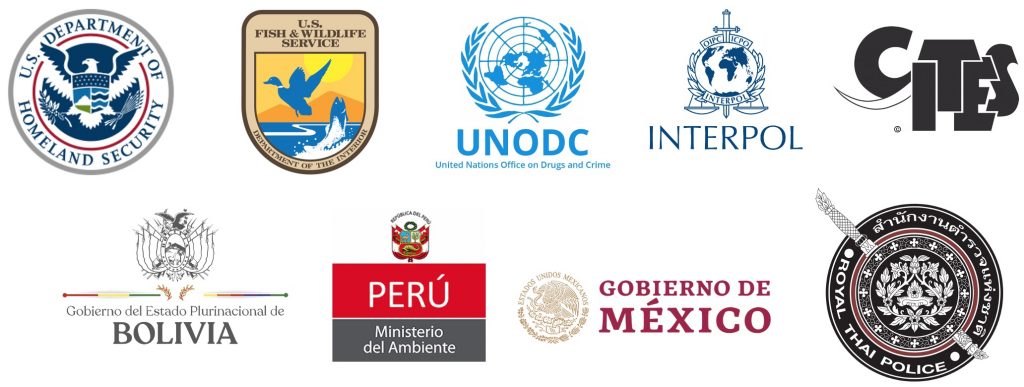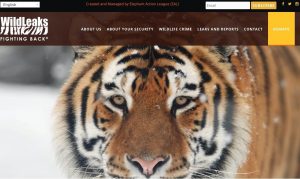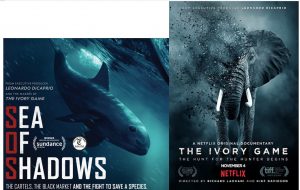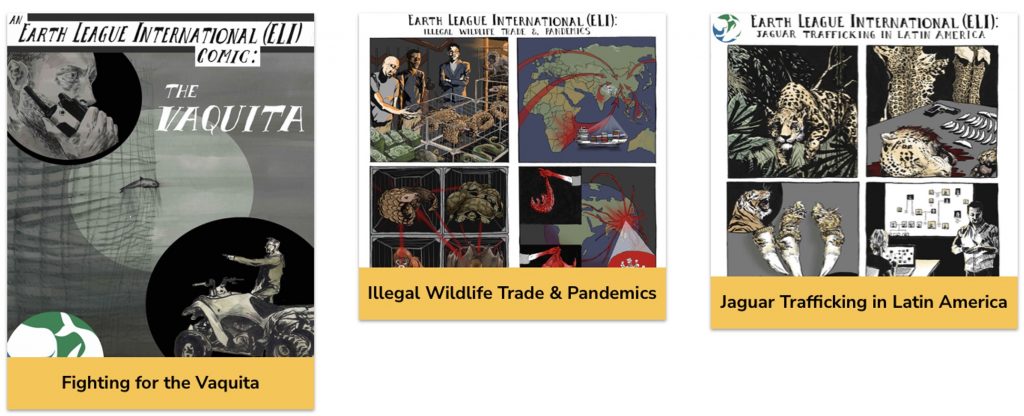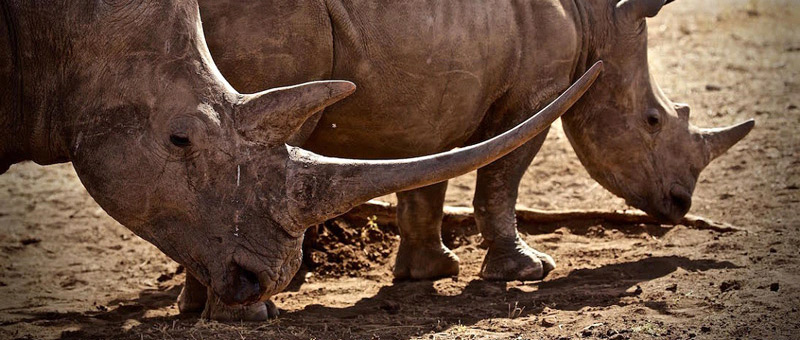OUR IMPACT
At Earth League International impact tracking is a fundamental and invaluable component of our ability to address environmental/wildlife crime at the highest possible level. We take impact tracking seriously, as it ensures that our work is effective, measurable, accessible and long-lasting. Despite the covert nature of most of our field operations, it’s important to provide our team, our partners, and the public, with a nuanced understanding of what we do in the field, as well as on a government and international level.
“Earth League International has been working to create an intelligence agency for Earth. Why? Because it’s so desperately important to combat environmental crime with the same determination and organization, as other global threats are tackled, threats such as terrorism, and the trafficking of humans, and drugs.
I’m so very grateful to Andrea Crosta for his dedication to this so important cause.”
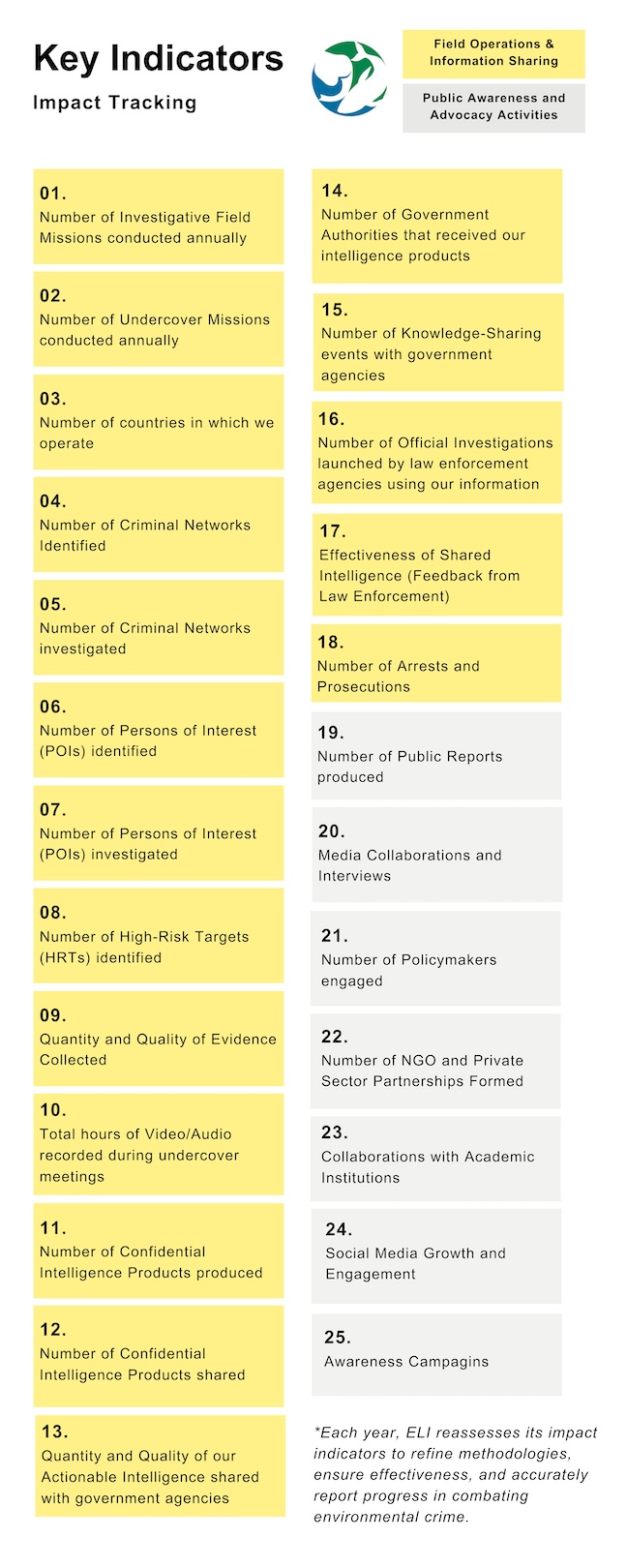
MEASURING OUR IMPACT
Due to the inherent complexity and international scope of environmental crime and our activities, we have developed a set of 25 Key Indicators to provide evidence of our work’s multi-level, long term impacts. These indicators allow us to improve our methodologies and to report our work accurately to supporters and partners. It is through the measurement, analysis and review of these indicators that our work remains effective and pertinent towards fighting the problem of environmental crime at its core.
FIELDWORK, INVESTIGATIVE OPERATIONS, INTELLIGENCE PRODUCTION
While ELI’s intelligence has played a crucial role in disrupting organized criminal networks, our impact is not measured solely by the number of arrests. Instead, we prioritize delivering relevant and significant intelligence to a wide range of stakeholders—including government agencies, policymakers, financial institutions, international organizations, and researchers—who are responsible for driving systemic change.
As pioneers in the use of professional intelligence applied to environmental crime and crime convergence, for over a decade ELI has been at the forefront of utilizing professional intelligence to combat environmental organized crime. With a proven history of success, ELI identifies and investigates the most important environmental criminals and transnational wildlife trafficking networks globally, including their links to Transnational Organized Crime and to other serious crimes, such as human smuggling, money laundering, drug trafficking, and corruption.
Since the beginning of our field work in 2015, our investigative and research operations have demonstrated the way in which ELI’s professional intelligence provides government agencies and other stakeholders with the knowledge and evidence to fight environmental crime at the highest possible level.
Over more than a decade of fieldwork, we have conducted hundreds of field investigative missions, in over 30 countries throughout Africa, Asia, Latin America, North America and Europe. We have gathered intelligence on transnational trafficking networks and criminal organizations involved in environmental and wildlife crime and other serious crimes, like human trafficking and drugs.
This work has led to the identification of over 1,000 Persons of Interest, more than 150 transnational trafficking and criminal networks, and the arrests of over 30 key individuals, including some of the most significant international wildlife traffickers ever apprehended.
We have also produced dozens of Confidential Intelligence Briefs, which have been shared with numerous law enforcement and government agencies in the U.S., the Netherlands, Mexico, Bolivia, Peru, Colombia, Kenya, South Africa, Thailand, and other countries, as well as with organizations such as Interpol, CITES, and UNODC.
In addition to our work on environmental crime and wildlife trafficking, we are pioneers in researching Environmental Crime Convergence. We routinely produce and share intelligence on the convergence of environmental and wildlife crime with other serious crimes, including money laundering, human smuggling, drug trafficking, and corruption.
CONFIDENTIAL INTELLIGENCE BRIEFS (CIBs) AND KNOWLEDGE TRANSFER
Upon the conclusion of our operations, ELI prepares a Confidential Intelligence Brief (CIB) to share with relevant government agencies and law enforcement bodies. The CIB is arguably the most important output of our intelligence and investigative activities. It provides authorities with the means to take immediate action, such as making arrests, prosecuting traffickers and traders, or even improving policy and enforcement practices.
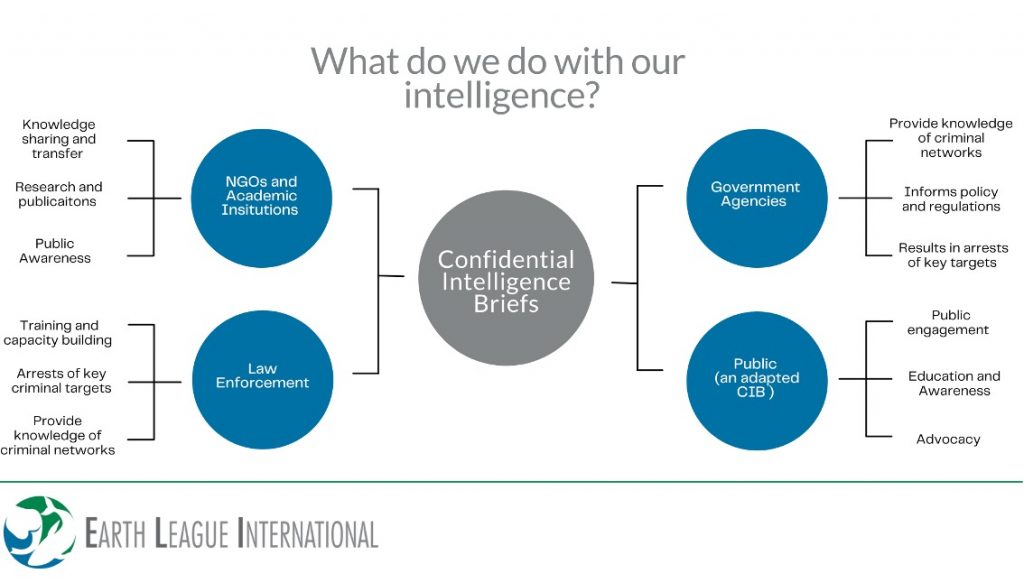
CAPACITY BUILDING AND PARTNERSHIPS
ELI collaborates with various governmental and non-governmental organizations around the world and supports their intelligence, investigative and law enforcement operations by sharing usable and actionable intelligence with trusted agencies.
Through the sharing of our Confidential Intelligence Briefs (CIBs), we have developed intimate and interactional working relationships with the key change-makers and stakeholders in the fight against environmental crime. We view these relationships as a critical element of our impact, extending our influence beyond that of other NGOs to disrupt these criminal wildlife networks at the international scale.
We also participate as speakers/trainers at capacity building and training events, including events organized by U.S. Homeland Security Investigations, United Nations Office for Drugs and Crime (UNODC), Interpol and CITES.
Our partners among Non-Governmental Organizations and Academic Institutions include IUCN Netherlands, IFAW, John Jay College of Criminal Justice, Florida International University, ESRI, The International Coalition Against Illicit Economies (ICAIE), and the National Marine Mammal Foundation.
We are a member of IUCN and founding members of the Nature Crime Alliance.
WILDLEAKS: OUR WHISTLEBLOWING PROJECT
ELI’s industry-leading technology experts created and oversee the Tor-based WildLeaks Project, the world’s first whistleblowing initiative dedicated to environmental/wildlife crime.
Launched by ELI in 2014, the WildLeaks Project has effectively engaged and empowered members of the public to assist in the fight against environmental crime.
The project has received more than 300 submissions from individuals in over 30 countries, including China, Hong Kong, South Africa, Zimbabwe, Kenya, Tanzania, India, Finland, Russia, Thailand, Laos, the US, Suriname, Mexico and Brazil. Of these, roughly a quarter were assessed to be relevant, a dozen instigated contributed to investigations, and over 25 were reported to partner NGOs, law enforcement agencies, or media partners, or a combination thereof.
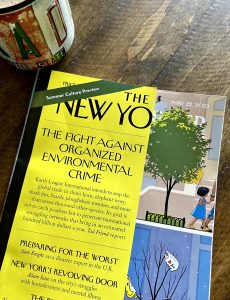 PUBLIC AWARENESS AND ADVOCACY
PUBLIC AWARENESS AND ADVOCACY
One of the critical impacts of ELI’s work is our commitment to raising awareness and engaging the public on the issues of environmental crime and the existential threat of species extinction. We have partnered with leading figures in the film and media industry to produce content that has reached millions of people worldwide.
ELI’s work underpins several award-winning wildlife documentaries, including Netflix’s The Ivory Game and Disney+ / National Geographic’s Sea of Shadows. Both executive produced by Leonardo DiCaprio, they are considered to be two of the most important wildlife/environmental documentaries of the past decade, raising awareness regarding the existential threat of species extinction.
On May 31, 2023 ELI was the cover story in The New Yorker.
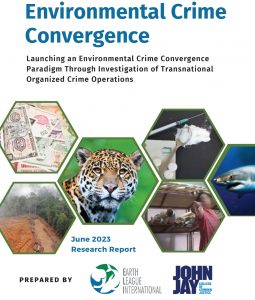
PUBLIC REPORTS
In the past four years we have also published several public reports, which are widely considered to be among the most comprehensive and exceptional public reports produced by an NGO. Our reports have been referenced and utilized by other organizations, researchers, policy makers, and academics across the world, making accessible previously undisclosed and unattainable information regarding environmental crime networks.
ELI’s work has been featured in hundreds of articles on the most important medias in the world, including The New Yorker, The Washington Post, National Geographic, CNN, The Guardian, Liberation, Wired, New York Times, Al Jazeera, Smithsonian, and many others.
COMICS
We produced a series of graphic novels and comics designed to increase awareness and understanding of the complex world of environmental and wildlife crime. It is the first graphic novel series dedicated to environmental crime and it has been featured on the Washington Post.
We also signed a partnership with the well-known Dutch website ‘Drawing the Times’ dedicated to graphic journalism to be able to show our comics to a wider audience.


